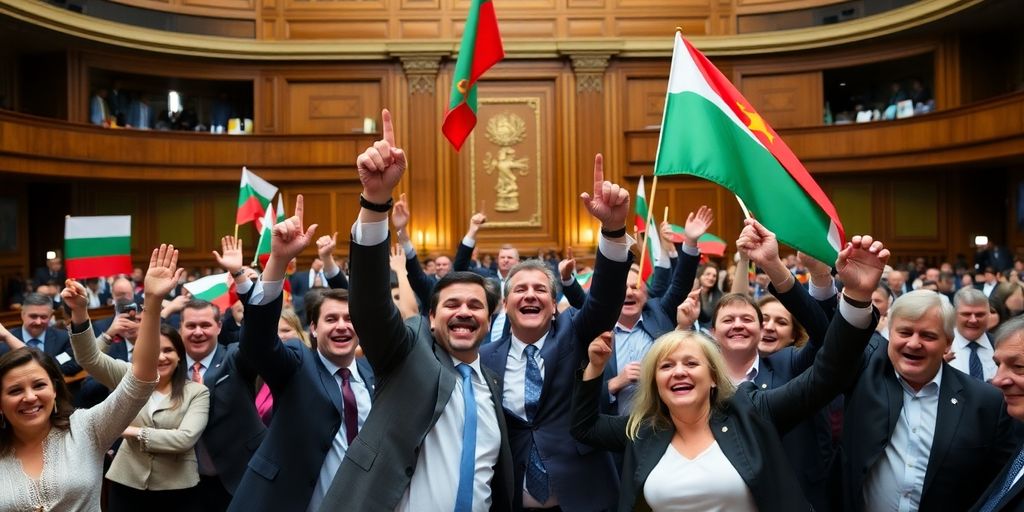Bulgaria’s government, led by Prime Minister Rosen Zhelyazkov, successfully navigated a no-confidence vote initiated by the pro-Russia Vazrazhdane party. The motion, which criticized the government’s foreign policy and support for Ukraine, was decisively defeated in parliament, affirming the country’s pro-European stance.
Key Takeaways
- The no-confidence motion was brought by the pro-Russia Vazrazhdane party.
- The vote concluded with 150 against and 54 in favor, with no abstentions.
- Analysts had predicted the outcome, highlighting the majority’s support for Bulgaria’s pro-European orientation.
- The government aims to adopt the euro by 2026, further integrating into the EU.
Background of the Vote
On April 3, 2025, Bulgaria’s parliament faced a significant test of confidence as the Vazrazhdane party, along with two smaller nationalist groups, sought to challenge the ruling coalition’s authority. The motion was primarily focused on the government’s foreign policy, which has been characterized by a strong pro-Western orientation and support for Ukraine amidst ongoing tensions with Russia.
The Vazrazhdane party’s criticism centered on the government’s alignment with Western policies and the sanctions imposed on Moscow, which they argued were detrimental to Bulgaria’s national interests. However, the ruling coalition, led by the center-right GERB party, maintained that their approach was essential for Bulgaria’s future and European integration.
The Vote Outcome
The parliamentary vote was held in a 240-seat legislature, requiring a majority of 121 votes for the motion to pass. Ultimately, the results were:
- Votes Against the Motion: 150
- Votes In Favor of the Motion: 54
- Abstentions: 0
This overwhelming defeat of the no-confidence motion not only solidified the government’s position but also underscored the prevailing support for Bulgaria’s European aspirations among lawmakers.
Implications for Bulgaria
Following the vote, Prime Minister Zhelyazkov expressed confidence in the outcome, stating that it reaffirmed Bulgaria’s commitment to its European perspective and democratic development. He emphasized that the majority of the Bulgarian populace desires a continued alignment with European values and integration.
Political analysts have noted that the no-confidence motion was part of a broader strategy by the Vazrazhdane party to promote Russian narratives within Bulgaria, particularly in the context of a hybrid war characterized by disinformation and political subversion. This situation highlights the ongoing geopolitical tensions in the region and the challenges faced by pro-European governments in Eastern Europe.
Future Prospects
Looking ahead, the Bulgarian government is focused on its goal of adopting the euro by the beginning of 2026, a move that would further consolidate its integration into the European Union. The successful navigation of this no-confidence vote is seen as a crucial step in maintaining stability and pursuing economic reforms necessary for this transition.
As Bulgaria continues to balance its foreign policy amidst external pressures, the recent parliamentary vote serves as a reminder of the complexities involved in navigating national interests while adhering to broader European commitments.
Sources
- Bulgaria’s government survives a no-confidence vote brought by a pro-Russia political party, ABC News.
- Bulgarian government survives no confidence vote, eKathimerini.com.
- Bulgaria’s government survives no-confidence vote brought by pro-Russia party, Euronews.com.
- Bulgarian government survives no confidence vote, Reuters.






